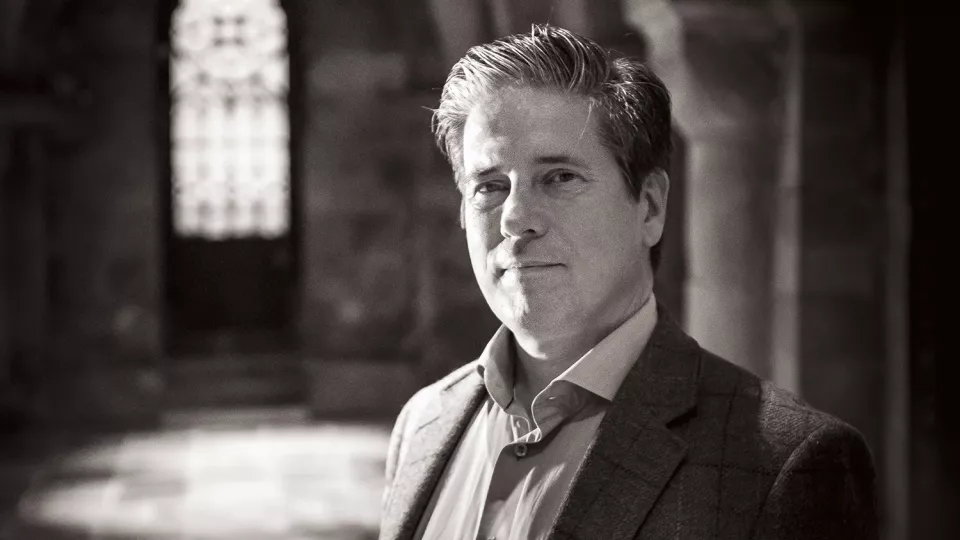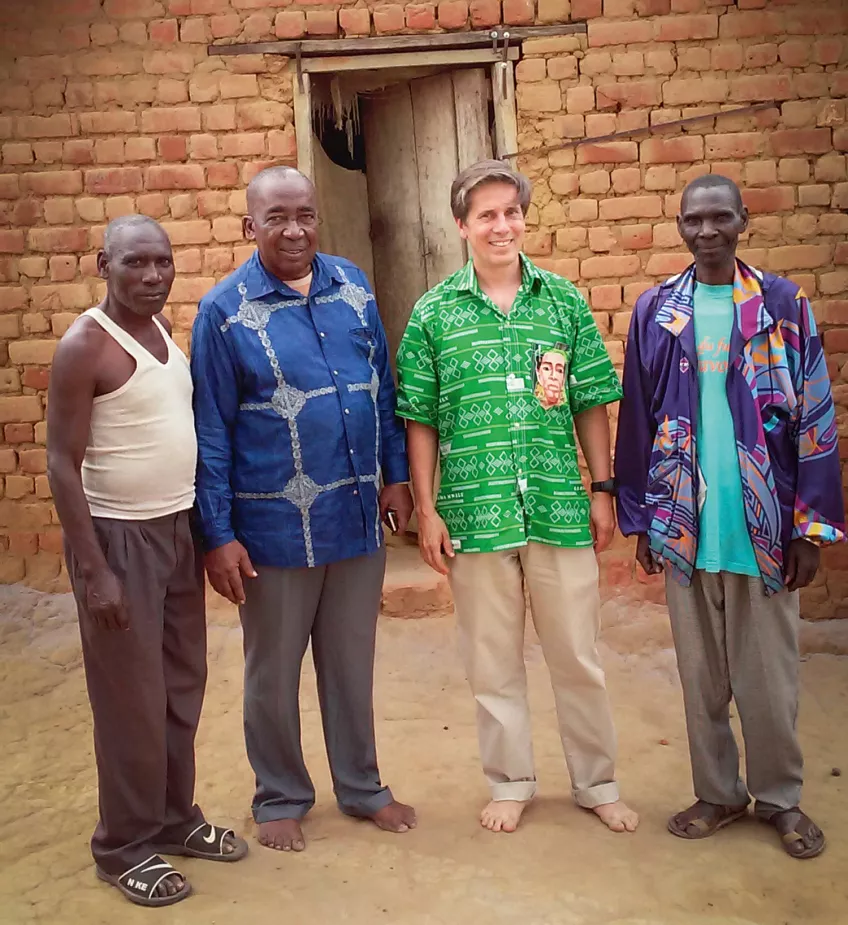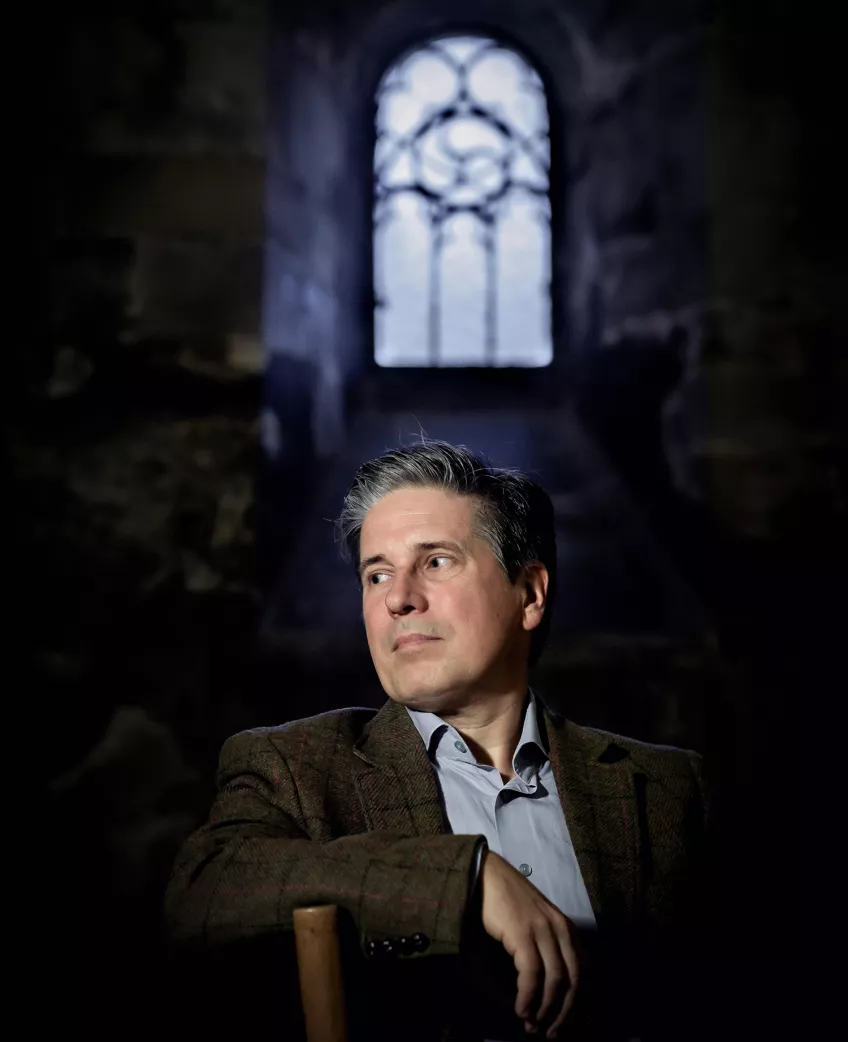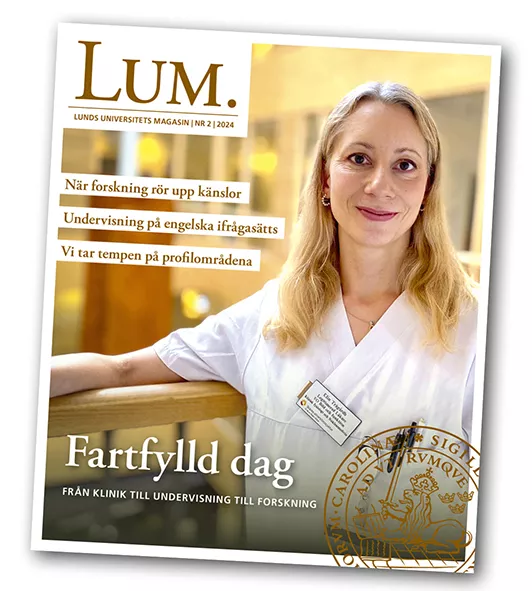Over nearly thirty years, he first carried out missionary work and then research, teaching and fieldwork in Africa on African Christianity.
"It has always been Africa. My parents have told me that as a four year old I had already said I wanted to work there."
Mika Vähäkangas grew up in Finland in a family with Christian values and global perspectives. Naturally, there were many factors behind his interest in Africa and one of these was the connection to Namibia.
"For people in Finland, it was first and foremost Namibia's fight for independence that people got involved in. The Finnish Evangelical Lutheran Mission have worked in Namibia since the 1870s. There were times when there were over 200 Finnish missionaries in Namibia, and through them, Namibian refugees and students found their way to Finland", he says.
When he started at University, he studied theology and African studies including Swahili and culture studies. He and his wife Auli travelled together to Tumaini University Makumira in Tanzania to collect data for their Master's theses. Once they completed their Master's degrees, they lived in Tanzania more or less until 2005, and worked as lecturers at Tumaini University Makumira.
"The less urban and westernised people are – the kinder they are"
When asked what the best part of his research and life in Africa was, he replies:
"Now, I am biased, but for me the Tanzanians and the Congolese are extremely nice people. I'm happy and enjoy being with them. Their compassion and humanism comes from the heart", says Mika Vähäkangas.
At times, he feels people can be a little self-righteous in Sweden. In Tanzania and the Congo, people demonstrate their humaneness through actions, in Sweden it is more talk and not a lot of action, he says.
His theory is that the less urban, modern and westernised people are, the kinder they are, as he thinks modern conveniences and urbanisation have reduced human compassion. People have learnt to live surrounded by lots of people they do not know and to view suffering as something that is nothing to do with them nor anything they can have an effect on.
"In smaller societies in Africa, there are still traditional values. People help each other. Particularly in contexts where there are still community structures. You know most of the people you see, and if an outsider comes along you include them", says Mika Vähäkangas.
He adds that in Europe and Sweden everything has become a bit too big to manage this. However, Africans are no saints, the same thing is happening in Nairobi and in Cape Town. It affects us all, he says. At the same time, there is a war going on in eastern Congo that is both cruel and brutal and the complete opposite of humane. He thinks it is bewildering to see so much of both good and evil in the same country.
"When life is more fragile you become more aware"
"Every now and again my wife and I used to say that you live life at 100 per cent in Africa, while in Europe it is between 40 and 60 per cent. What I mean is that when life is more fragile you become more aware. When they leave home in the morning, they know that the traffic is life-threatening", he says.
The aids epidemic took place while the family was living in Tanzania and the mortality rate was sky high.
"When death is present, life also becomes more present", continues Mika Vähäkangas.
In his research, it has become clear to him that nothing is completely objective, but that he still has to constantly strive to understand what the truth is.
"It is worth fighting for ideals even if we know they do not fully exist", says Mika Vähäkangas.
You get tired from moving between different worlds
The hardest thing about carrying out a lot of fieldwork and living in different countries is that it takes a lot of energy to move between different worlds.
"The main thing is that you get tired. There is so much to organise at work before you leave, so you end up completely exhausted when you finally get there. And that is when you have to be alert of course, and make the most of the time and meetings with people", he says.
He explains that all the teaching and administration at the home university still has to be done, but in less time and at the same time as the preparation for the fieldwork, which increases the workload. However, curiosity drives him to continue his field studies – he always wants to know just a little bit more.
It was hard for the daughters to leave life in Tanzania for Finland
Over the 15-year period that they lived in Tanzania, approximately ten years in total, their three daughters were born. When they returned home to Finland, their eldest was eleven and their youngest seven.
"It was hard for them to move to Finland. The whole package was hard – they had to wear shoes when they went out, school was different and the mentality", he says. "However, now they are happy and grateful to have grown up the way they have. They are cosmopolitans in the sense that they are able to feel comfortable in different contexts", says Mika Vähäkangas. Following their return home to Finland, he worked at the University of Helsinki before becoming a professor at Lund University in 2009. He has also conducted research and lived in Rome in Italy. Now he commutes between Helsinki, Lund and Africa. He lives in Finland and in a bedsitter in Lund. His wife is a professor at the University of Helsinki.
"There are times when I am commuting to Helsinki every weekend. It is getting more and more difficult to accept my lifestyle. For a long time, it has felt uncomfortable and embarrassing to travel back and forth. I try to plan carefully and keep the flying to a minimum, but I am still a fearful environmental culprit."
He also says that he has given up a certain kind of comfort – that of complete belonging in one context and one country.
"But you cannot have everything and I have received so much more than I have given."
He sums up his own personal journey from all the years of research in Africa as a cultural slalom between different countries and cultures.
"Nothing is simple and you cannot believe that you understand everything or that you will automatically be understood. You constantly have to learn new things. What is more, you learn about yourself…"
What is the next step in your research?
"I am applying for funding to conduct research on how nationalistic ideas and principles are formed in Christian communities around the world. How Christianity works as a breeding ground for nationalism, with field studies in several different countries. It will be an international team working with different specialisations, anthropologists, theologians, social scientists and myself as a missiologist", he explains as he puts his coat on.
Then he runs to catch the train home to Finland.





